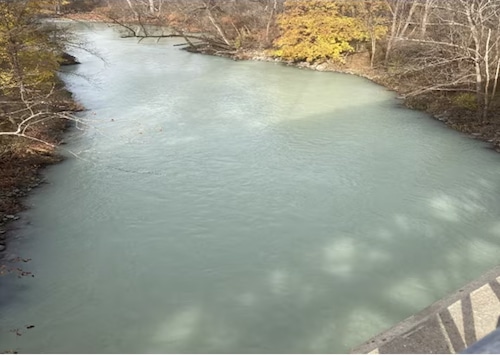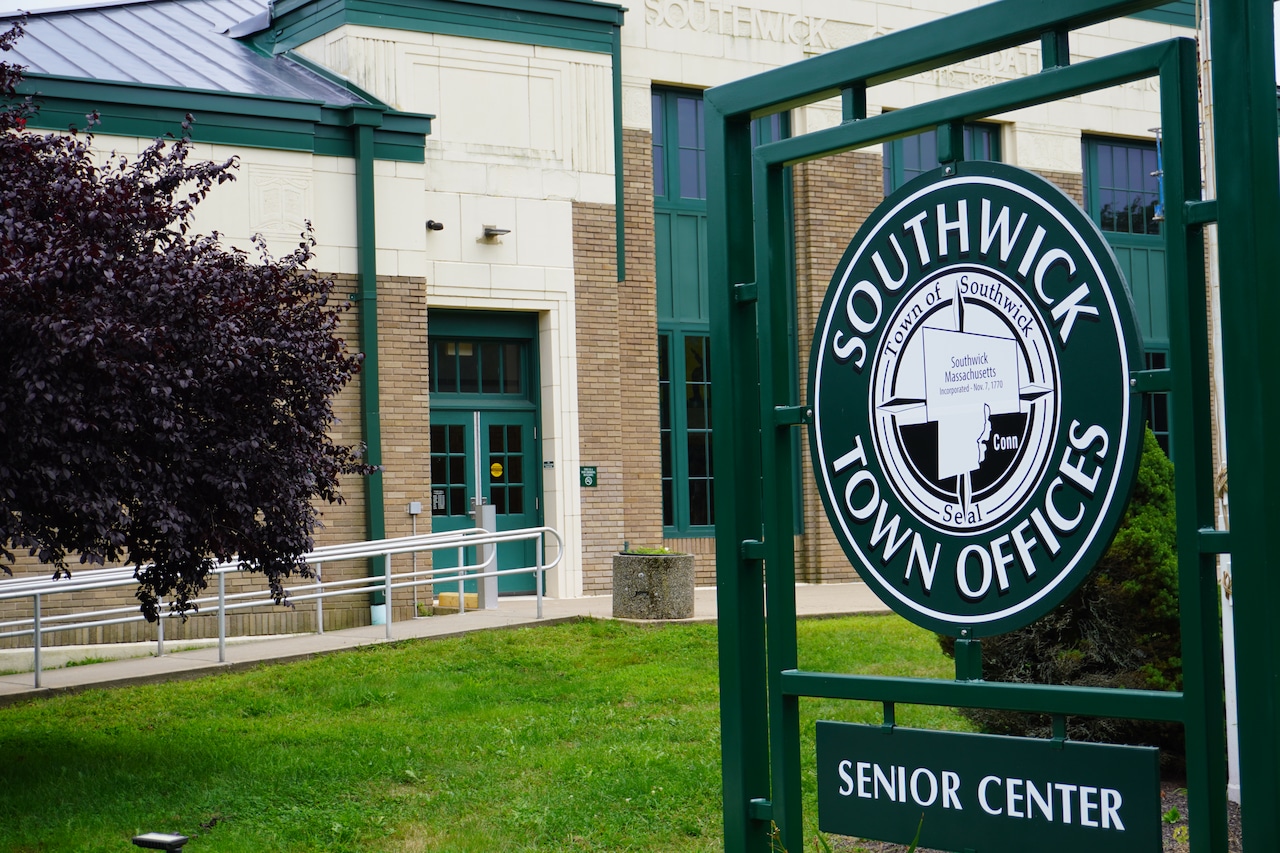It was November 2021 when 13 miles of the Hoosic River turned a milky white from “bank to bank.”
The cause, the state asserts in federal court documents, was highly alkaline, cloudy wastewater improperly discharged by Speciality Minerals Inc., a worldwide producer and supplier of limestone products that operates a mining facility in Adams, at the base of Mount Greylock.
The state alleges the combined discharge of calcium carbonate and calcium hydroxide damaged over 200 acres of sensitive riverine and wetland resources — a protected habitat of five state-listed rare species — and violated numerous state and federal environmental laws, including the Clean Water Act.
The neighborhood downstream of the Speciality Minerals facility is designated by the state as an environmental justice community, meaning they’re already disproportionately subjected to environmental harms and risks based on certain criteria.
The November 2021 incident, which shocked residents who witnessed the river’s uncanny appearance, was among dozens of other improper releases by Speciality Minerals that later occurred throughout 2022 and into 2023, the state says it uncovered in its ensuing investigation.
Related news: Mass. to nearly double number of community-based air quality sensors in the state
On May 3, Attorney General Andrea Campbell announced a proposed settlement with Speciality Minerals, pending court approval, that would resolve the allegations.
It would require the Delaware corporation, headquartered in New York, to pay a total of $299,000 to the town of Adams and three community groups working on water quality, native planting and stormwater projects:
— $50,000 to the town of Adams for infrastructure improvements in a tributary of the Hoosic River
— $50,000 to Hoosic River Revival for stormwater mitigation projects
— $50,000 to Hoosic River Watershed Association for a native plant garden and other projects to mitigate stormwater impacts and benefit water quality
— $50,000 to Sonrisas to fund invasive plant removal and native plant habitat establishment at Finca Luna Búho, a community land project that centers marginalized people
The settlement would also provide $30,000 in civil assessments to the state’s Natural Heritage Endangered Species Fund, $20,000 in civil penalties for violation of state law, and $49,000 to offset the costs of enforcement efforts.
Speciality Minerals would be required to upgrade its wastewater treatment facility, as well as operating and maintenance procedures.
In a statement, Campbell said the 76-mile Hoosic River — which runs from the Berkshires, through the Green Mountains, and into New York, where it ultimately empties into the Hudson River — is “a resource cherished by the Adams community” that Specialty Minerals put “at risk.”
What the court documents say
In a civil complaint filed alongside the proposed settlement in the U.S. District Court of Massachusetts, state officials detail a saga of violations between 2021 and 2023.
The complaint said Speciality Minerals “failed to follow operating, reporting, and maintenance protocols” leading up to the Nov. 16, 2021 discharge, and then continued to unlawfully discharge cloudy white wastewater in the spring of 2022 on at least 58 separate dates, “exacerbating harm to protected resources downstream.”
Then, in January 2023, Speciality Minerals again discharged untreated wastewater into its stormwater collection system and then into the Hoosic River, the complaint reads.

In November 2021, Specialty Minerals Inc. in Adams Specialty Minerals violated the federal Clean Water Act and Massachusetts laws by discharging cloudy wastewater into the Hoosic River, which turned the river white, the state Attorney General’s Office says.Courtesy
Calcium carbonate, another reference for chalk or limestone, doesn’t pose a high risk to humans or animals. But calcium hydroxide has a high pH level, and exposure can cause skin irritation, chemical burns, and blindness.
The discharge of calcium hydroxide specifically “changed the physical, biological, and chemical characteristics of the Hoosic River,” the state claims.
The impacted portion of the river is designated by the state as a cold-water fish resource, or protected class B fishery. It serves as a habitat for the reproduction, migration, growth and other critical functions of cold-water aquatic life, like trout.
In its complaint, the state listed five threatened species residing in the area: the Dion Skipper butterfly, longnose sucker fish, and wood turtle, as well as plant species foxtail sedge and hairy-fruited sedge.
Response from Specialty Minerals
In a statement provided to MassLive, a spokesperson for Speciality Minerals said the proposed settlement, also called a consent decree, “reflects the partnership approach that Specialty Minerals applied in response to the November 2021 incident with not only the Attorney General, but also our long-term relationships with the town of Adams and the broader Hoosic River community.”
The statement continued: “At the time of the incident, our team’s top priority was to be responsive and transparent to all those who were impacted, with that focus continuing throughout the resulting investigation.”
Speciality Minerals said it “voluntarily engaged” an independent consultant that found no damage to the ecosystem had occurred.
“No insight to the contrary has been made available to Specialty Minerals,” the spokesperson said.
The statement called the Hoosic River “an important natural resource to be enjoyed by everyone along its banks and beyond.”





